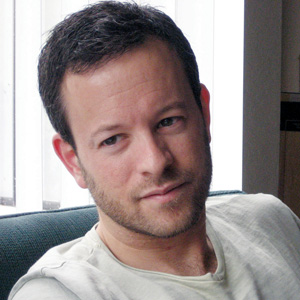Reality television deserves more than our rapt attention and our mockery. It deserves our most serious reflection, as well. I realized this fact halfway into reading the ambitious and upsetting new novel Deus Ex Machina by Andrew Foster Altschul, local author and recent addition to SJSU’s creative-writing faculty. Though the novel deals primarily with reality TV, it becomes clear after a while that the actual subject of the book’s critique is something much larger and more important, and reality TV is merely the lens we needed to use in order to see it.
The setting is an island. Ten regular people are left to fend for themselves, to compete in challenges, to form alliances and to conspire against each other. They are fighting for the grand prize and, more importantly, to stay on television for as long as possible. Sound familiar? We see it all, not from the player’s perspective, but from the nameless producer’s. He sits in the command center, watching everything unfold, and shapes the action into the proper narrative. One might expect that the producer is the driving force behind the artificiality of the situation, but disturbingly, he is the only character who is at all concerned about what is real.
The network wants more debauchery, more scandal. The show’s staffers do their best to deliver the goods. Even worse, the players seem to know exactly what is expected of them, and they willingly become the versions of themselves that television seems to want.
It’s the 13th season of this tired reality show, and the producer’s dire need to see something authentic is driving him to a nervous breakdown. The producer examines his own life, and what he sees there is a lack of authenticity that is more disturbing than anything in his television show. He sees himself play-acting through his marriage. He sees himself playing the role of the concerned husband in the face of tragedy. He sees that even during the most important events of his life, he has been shaping his performance, directing scenes, never truly present or authentic. What is driving him crazy is that he sees a world in which all reality has been completely permeated and poisoned by pop culture and narrative, and that we are willing participants in this debasement.
The story takes place sometime in the near future, which allows Altschul to create a world of an uncertain and shifting connection to reality. What little information the reader is given can often be interpreted multiple ways. For instance, early on it is said that the show runners leave messages for the players in the arrangement of the stars. At first, one is unclear if this is meant to be taken literally, or if it’s only poetic hyperbole. And when we realize that it is literal, we aren’t sure whether the people in charge have the technology to make themselves as gods, or if it’s all just a special effect.
The novel constantly teeters on a knife edge between realism and bleakly absurd satire. Deus Ex Machina is not a perfect book—it takes a while to get going, and the end will satisfy few readers—but the novel is powerful, beautifully written and highly affecting. It is enough to make you doubt yourself and the world.
Deus Ex Machina
by Andrew Altschul
Counterpoint
$14.95 paperback

 The Weekly Dish: Food & Wine Events, Feb. 23-Mar. 2
The Weekly Dish: Food & Wine Events, Feb. 23-Mar. 2  Sports Roundup: Feb. 23-Mar. 1
Sports Roundup: Feb. 23-Mar. 1 


